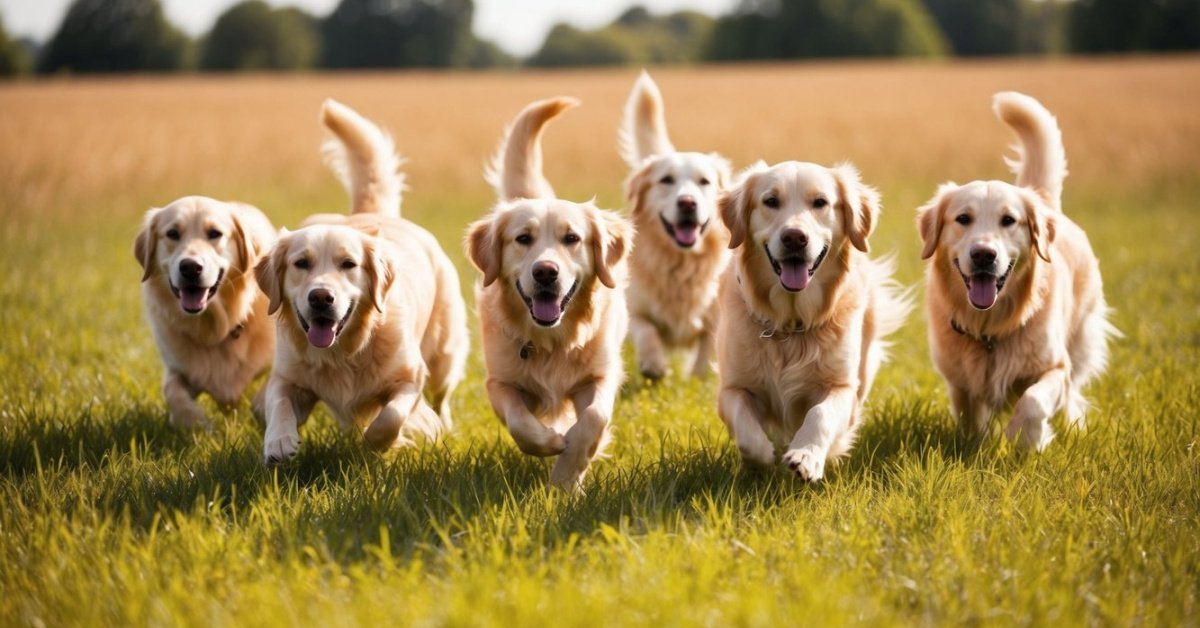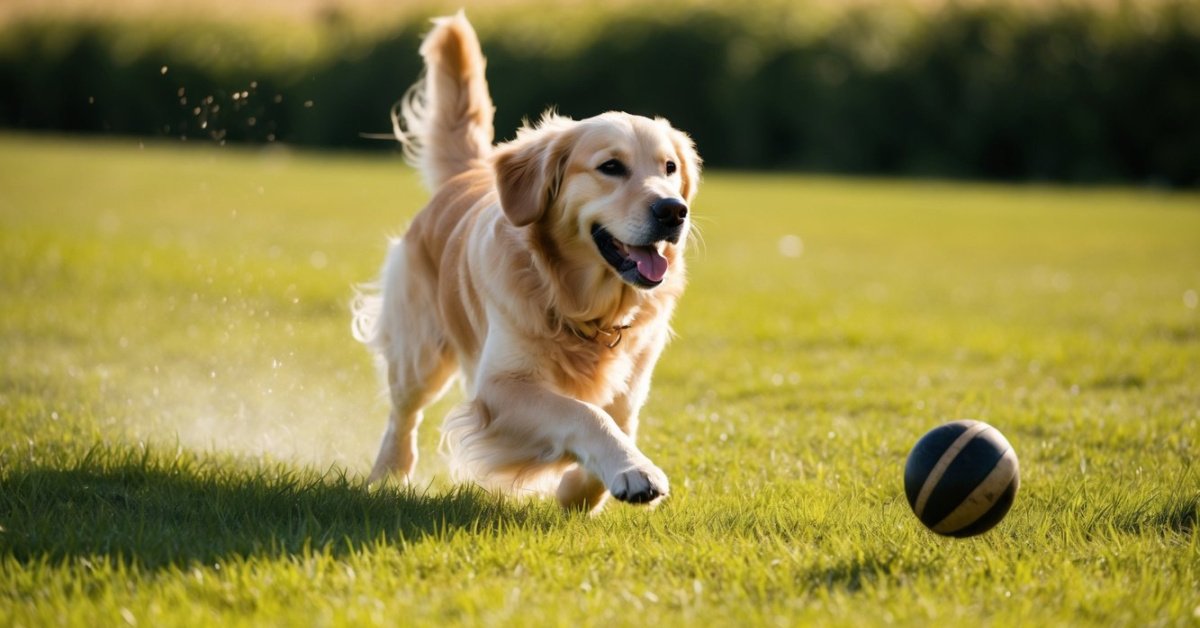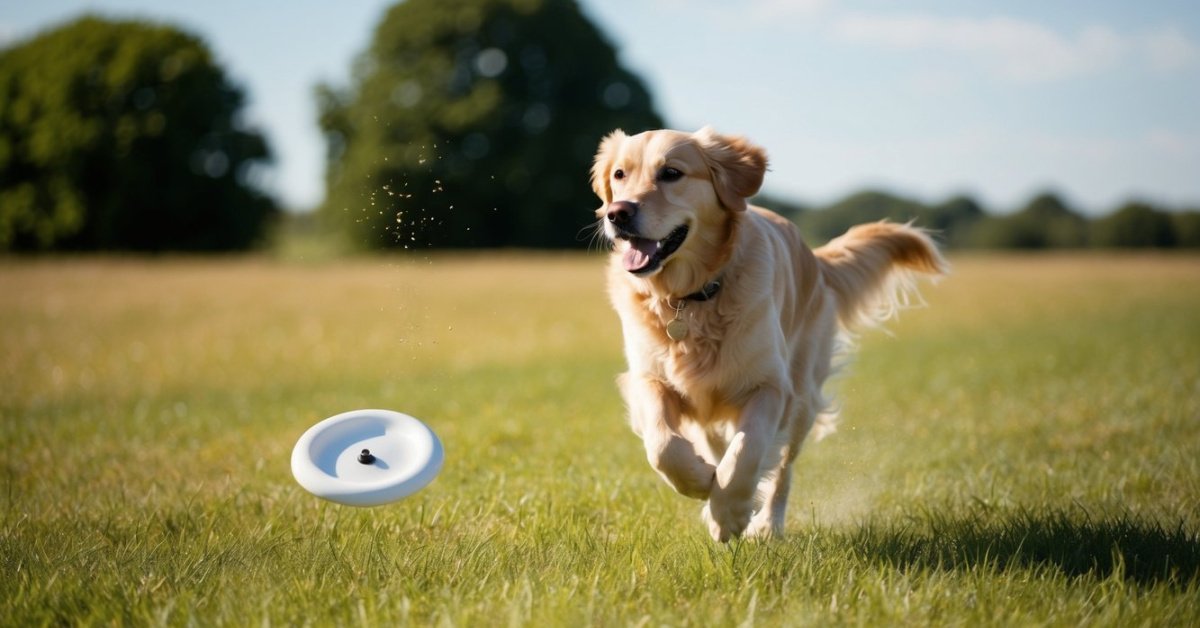Are you curious about how to determine the age of a Golden Retriever? Well, you’re in luck! In this article, we’ll explore some key indicators that can help you estimate the age of these beloved dogs. Whether you’re a Golden Retriever owner, a potential adopter, or simply a dog lover, understanding how to tell a Golden Retriever’s age can be beneficial in various situations. So, let’s dive in and discover some helpful tips and tricks!
When it comes to estimating a Golden Retriever’s age, there are several factors to consider. One of the most reliable indicators is the condition of their teeth. Just like humans, dogs’ teeth go through changes as they age. By examining the wear and tartar buildup on a Golden Retriever’s teeth, you can get a good idea of their age range. Additionally, paying attention to their energy levels and overall appearance can also provide valuable clues about their age. So, keep reading to learn more about these telltale signs!
Golden Retriever Age Indicators
As a dog lover who owns both a golden retriever and a Goldendoodle, and with my background in working at animal shelters and veterinary offices, I understand your desire to learn more about your furry friend’s age. While it may not be possible to determine the exact age of a golden retriever or a Goldendoodle, there are some indicators that can give you a rough estimate. Here are a few cues to look out for:
1. Teeth Condition: Examining your dog’s teeth can provide valuable insights into their age. Puppies typically have bright white, sharp baby teeth that may have some tartar buildup. Adult dogs will have fully developed permanent teeth, and older dogs may have signs of wear, discoloration, or missing teeth.
2. Energy Levels: Age can have an impact on a dog’s energy levels. Puppies are usually filled with boundless energy and enthusiasm. As they grow older, their energy levels may decrease, and they might become less interested in playtime. Keep in mind that individual dogs may vary in their energy levels, so consider this indicator alongside other cues.
3. Coat Appearance: The condition and appearance of your golden retriever’s or Goldendoodle’s coat can give you some clues about their age. Puppies typically have softer, fluffier fur that may change as they grow older. Adult dogs usually have a full, lustrous coat, while older dogs may show signs of graying or thinning hair.
4. Muscle Tone: Like humans, dogs can lose muscle tone as they age. Puppies often have well-defined, plump muscles. Adult dogs tend to have a good balance between muscle and fat, while older dogs may experience muscle wastage.
Physical Appearance
One of the ways to determine the age of a Golden Retriever is by examining their physical appearance. Here are some key aspects to look out for:
1. Coat Condition: As your Golden Retriever ages, you may notice changes in the condition of their coat. Puppies usually have fluffy, soft fur, while older dogs may have a more coarse and dull coat. Pay attention to any graying or whitening of the fur around the muzzle as this could be a sign of aging.
2. Muscle Tone: Just like humans, dogs tend to lose muscle mass as they get older. If you notice a decrease in your Golden Retriever’s muscle tone, they may be entering their senior years. Keep in mind, however, that regular exercise and a proper diet can help maintain muscle tone, so consult with your veterinarian for a comprehensive assessment.
3. Weight and Body Shape: Age can also affect your dog’s weight and body shape. Puppies tend to have a rounded, chubby appearance, while adult dogs are usually more lean and muscular. As they enter their senior years, they may start to lose weight and develop a more bony appearance. However, changes in weight can also be attributed to other factors such as diet or health issues, so it’s best to consult with your vet for a thorough evaluation.
4. Eye Clarity: Another indicator of age in Golden Retrievers is the clarity of their eyes. Younger dogs usually have bright, clear eyes, while older dogs may develop a cloudy or hazy appearance to their eyes. While this may be a normal part of the aging process, it can also indicate underlying eye conditions, so it’s important to have your dog’s eyes checked regularly by a veterinarian.
Remember, it’s important not to rely on just one aspect when assessing the age of your Golden Retriever. Instead, look at the overall picture by considering their teeth, energy levels, coat, muscle tone, and physical appearance. Consulting with your veterinarian can provide you with a more accurate assessment and appropriate care guidelines.
Dental Health
Taking care of your golden retriever’s dental health is not only important for their overall well-being, but it can also provide you with clues about their age. When it comes to determining the age of your furry friend, examining their teeth can be a helpful indicator.

« Discover the Ultimate Secrets for a Pawesome Journey with Your Golden Retriever in Flight
Discover the Surprising Secret to Achieving the Perfect Weight for Golden Retrievers – Vet-Approved Tips Revealed »
As dogs age, their teeth undergo certain changes that can be observed through visual inspection. Here’s what you should look for:
- Dental tartar: Over time, dogs develop tartar buildup on their teeth. This can range from a light yellowish discoloration to a darker brown accumulation. The amount of tartar can give you a rough estimate of your golden retriever’s age, as more tartar typically indicates older age.
- Tooth wear: Just like humans, dogs’ teeth can show signs of wear and tear as they age. Look out for teeth that appear chipped, rounded, or worn down. These indications of tooth wear can suggest an older dog.
- Missing teeth: Tooth loss can occur as a result of various factors such as periodontal disease or trauma. If your golden retriever has missing teeth, it can be a sign of aging.
Remember, while dental health can provide clues about your golden retriever’s age, it is not an exact science. Other factors such as genetics, diet, and overall health can affect their dental condition.
To ensure the most accurate assessment of your golden retriever’s age, it’s always a good idea to consult with your veterinarian. They can perform a thorough examination, including dental evaluation, and provide you with a more precise estimate based on their expertise.
By paying attention to your golden retriever’s dental health, you can not only keep their teeth and gums in optimal condition, but also gain insights into their age. So, make sure to prioritize their dental care and schedule regular check-ups with your veterinarian.
Energy Levels
When it comes to determining the age of your beloved Golden Retriever, one factor to consider is their energy levels. Just like humans, dogs tend to have varying levels of energy depending on their age. By observing the energy levels of your Golden Retriever, you can get a general idea of their age.
Puppies are known for their boundless energy and constant need for play and exercise. If your Golden Retriever is constantly zooming around, playing with toys, and engaging in energetic antics, chances are they are still in their puppy phase. Generally, Golden Retriever puppies have an abundance of energy until they reach around 1 to 2 years of age.
Adult Golden Retrievers tend to have a more balanced energy level. They still enjoy playtime and regular exercise, but they are not as hyperactive as puppies. Adults are often well-adjusted, calm, and able to focus on training and other activities. If your furry friend is displaying this level of energy, they are likely in their prime years, between 2 and 8 years old.
As Golden Retrievers enter their senior years, their energy levels may start to decrease. Senior dogs generally have lower energy reserves and may prefer more leisurely activities, such as slow walks or lounging around the house. If your Golden Retriever seems to tire quickly or shows less interest in playing or running, they may be entering their senior years, which typically start around 8 to 10 years of age.
It’s important to remember that every dog is unique, and energy levels can also be influenced by factors such as health, exercise routine, and breed. Additionally, if your Golden Retriever is a mix, like a Goldendoodle, their energy levels could vary depending on the traits inherited from each parent breed.
By paying attention to your dog’s energy levels and considering their age, you can have a better understanding of where they are in their life stages. However, it’s worth noting that energy levels alone are not a definitive indicator of age, and it’s always a good idea to consult with your veterinarian for a more accurate assessment.

Behavior and Training
When it comes to determining the age of your golden retriever or Goldendoodle, behavior and training can provide valuable insights. While not definitive indicators, paying attention to certain behaviors and training milestones can give you a clue about your dog’s age.
Energy Levels
One of the first things you may notice is your dog’s energy levels. Puppies are typically full of boundless energy and enthusiasm. They’ll often have bursts of playfulness and require plenty of exercise. As your dog gets older, you may start to see a decrease in their energy levels. They may become less active and require less exercise. However, it’s important to note that every dog is different, and individual energy levels can vary.
Training Milestones
Training is another aspect that can provide some hints about your dog’s age. Puppies require a lot of training and socialization to learn basic commands and behaviors. If your dog still needs consistent training in basic obedience or shows youthful naivety, they could be on the younger side. On the other hand, if your dog is well-behaved, responds reliably to commands, and shows a good level of maturity, they may be older.
Temperament
A dog’s temperament can also give clues about their age. Puppies tend to be more excitable, curious, and sometimes mischievous. Older dogs, on the other hand, may be more relaxed, calm, and settled in their ways. However, it’s important to note that individual personality traits can also influence temperament, so this should be considered alongside other factors.
Remember, these are general guidelines, and it’s always best to consult with a veterinarian for a more accurate assessment of your dog’s age. Factors such as dental health, tooth wear, and missing teeth can also provide valuable information. By observing your dog’s behavior, training milestones, and temperament, you can gain a better understanding of their age and provide them with the appropriate care and attention they need at every stage of their life.

Conclusion
By examining the dental health, energy levels, behavior, training milestones, and temperament of a Golden Retriever, you can gain valuable insights into their age. However, it’s important to remember that these factors are not foolproof and should be considered alongside other indicators.
While a dog’s teeth can provide a rough estimate of their age, other factors such as genetics and dental care can influence their condition. Energy levels and behavior can vary between individual dogs, making it difficult to determine an exact age based solely on these factors. Training milestones can provide some clues, but they should be taken into account along with other considerations.
Ultimately, the best way to accurately determine a Golden Retriever’s age is by consulting with a veterinarian. They have the knowledge and expertise to assess a dog’s overall health and provide a more accurate estimation of their age.
Remember, determining a dog’s age is not an exact science, but by considering multiple factors and seeking professional advice, you can gain a better understanding of your furry friend’s age and provide them with the care they need at every stage of their life.












